wird zur
Weltlandbrücke
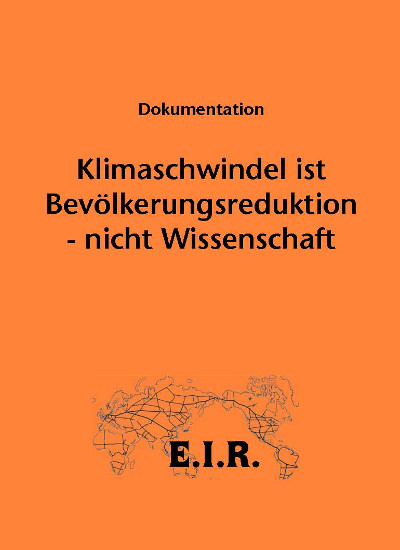
Klimaschwindel ist Bevölkerungsreduktion
– nicht Wissenschaft
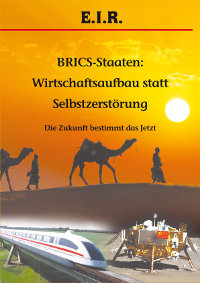
BRICS-Staaten: Wirtschaftsaufbau
statt Selbstzerstörung
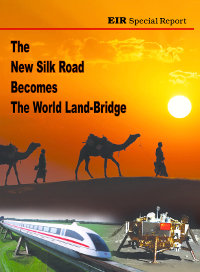
The New Silk Road Becomes The
World Land-Bridge
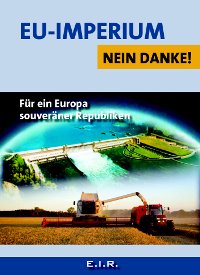
EU-Imperium Nein Danke! Für ein Europa souveräner Republiken
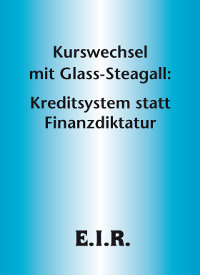
Kurswechsel mit Glass-Steagall: Kreditsystem statt Finanzdiktatur
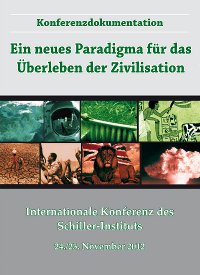
Ein neues Paradigma
für das Überleben
der Zivilisation
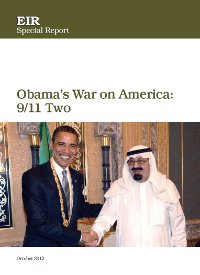
Obama's War on America: 9/11 Two
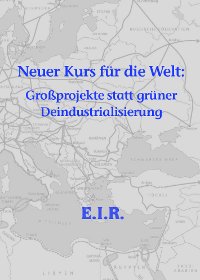
Neuer Kurs für die Welt:
Großprojekte statt grüner Deindustrialisierung
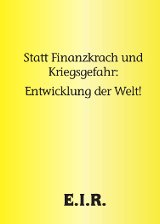
Statt Finanzkrach
und Kriegsgefahr:
Entwicklung der Welt!
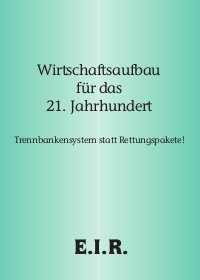
Wirtschaftsaufbau für
das 21. Jahrhundert - Trennbankensystem
statt Rettungspakete!
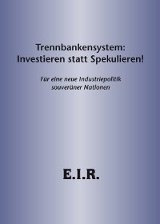
Trennbankensystem:
Investieren statt Spekulieren! Für eine neue Industriepolitik souveräner Nationen
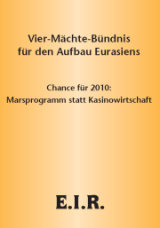
Vier-Mächte-Bündnis für den Aufbau Eurasiens - Chance für 2010: Marsprogramm statt Kasinowirtschaft
Mit Leseprobe:
Vorwort von Helga Zepp-LaRouche
und Es tut sich was in Asien von Lyndon LaRouche
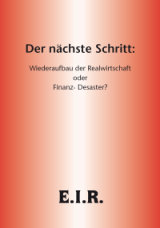
Der nächste Schritt: Wiederaufbau der Realwirtschaft
oder
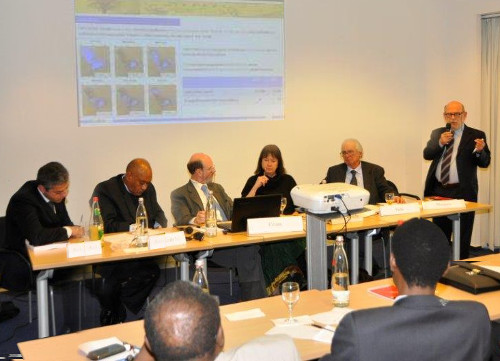 Speakers from l. to r., Hussein Askary, Ethiopian Consul General Mehreteab Mulugeta Haile, Claudio Celani, Helga Zepp-LaRouche, Marcello Vichi and Andrea Mangano.
Speakers from l. to r., Hussein Askary, Ethiopian Consul General Mehreteab Mulugeta Haile, Claudio Celani, Helga Zepp-LaRouche, Marcello Vichi and Andrea Mangano.
Seeking solutions to the economic and humani- tarian crises in Southwest Asia and Africa through ensuring infrastructure and development of the real economy was the focus of the March 23, 2016 seminar organized by E.I.R. GmbH, in cooperation with the Consulate General of Ethiopia in Frankfurt, which brought together some 75 guests, among them many diplomats, engineers, political activists and refugees.
The four hour seminar featured presentations by:
The panel discussion also featured:
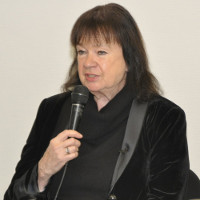 Helga Zepp-LaRouche, chairperson of the Schiller Institute and co-author of The New Silk Road Becomes the World Land-Bridge.
Helga Zepp-LaRouche, chairperson of the Schiller Institute and co-author of The New Silk Road Becomes the World Land-Bridge.
Mrs. Zepp-LaRouche, in her keynote speech, stressed that this would not be an academic seminar but rather focus on the fact that, faced with the financial crash, the refugee crisis and various wars, solutions are within reach and must be pushed through now. There can be no doubt, she said, that the Russian military intervention in Syria had changed the rules of the game, and also exposed the role of the pro-ISIS alliance of Western countries together with Saudi Arabia, Qatar, and Turkey. The recent European Union agreement with Turkey on the refugees is a travesty, she stressed.
On the imminent financial crash, Zepp-LaRouche showed that while the European Central Bank is considering using "helicopter money" to save its own speculative banks, the Chinese "One Belt, One Road" initiative presents a real-economic offer for a win-win strategy, which is not just in the interest of China but also of the other nations.
Hussein Askary then presented the EIR Special Report, the New Silk Road Becomes the World Land-Bridge, in its Arabic translation, noting that at the time he was speaking, the same Arabic report was being presented in Yemen (http://news.eirna.com/903293/arabic-world-land-bridge-report-released-in-yemen), under conditions of continued Saudi airstrikes on Yemeni cities. The idea of the New Silk Road is more than just building a few roads and railroads, he said, it is a concept of development corridors which would also improve the living conditions of some 450 million people in the Southwest Asia region, with Syria being at the center. This involves mega-projects of rapid development, which should be financed by national development banks not strapped with debts to the Western monetarist institutions. Askary also gave a fascinating account of what is happening in Egypt today, where the World Land-Bridge report had been enthusiastically received (http://news.eirna.com/903223/eir-arabic-editor-completes-an-exciting-week-of-action-in-egypt-presenting-the-new-silk-road) the previous week.
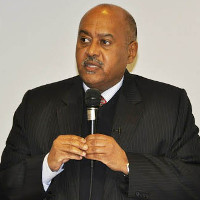 Mehreteab Mulugeta Haile, Consul General of the Federal Democratic Republic of Ethiopia in Frankfurt.
Mehreteab Mulugeta Haile, Consul General of the Federal Democratic Republic of Ethiopia in Frankfurt.
The Ethiopian Consul-General Mehreteab followed with a presentation on the economic strategy of his country, characterized by policies that have greatly improved the per-capita income, literacy rate, and public health care since the 1990s. With an envisaged annual GDP growth of 11%, Ethiopia intends to become a middle-income level country by 2025, made possible by opportunities for Ethiopians to set up a farm or shop at the price that many pay today to human traffickers to be brought to Europe as refugees. Ethiopia, itself, is the largest refugee host in Africa, with 800,000 refugees from South Sudan, Somalia, Eritrea taken in -- a fact that nobody in Europe speaks of. Ethiopia will be transformed from a primary-products exporter to a nation with high-value production and infrastructure, and the country's cooperation with Russia, China, India, and Brazil in rail projects is important in this context.
The next two speakers were both intimately involved in the early 1980s in developing the “Transaqua Project”, involving the transfer of water from the Congo River to Lake Chad in order to not only revitialize that lake, but bring in-depth infrastructure development to all the countries involved. Marcello Vichi stressed that an infrastructure project such as Transaqua is the option that will ensure the younger generations of Africans that they have a future to build in Africa. While the project was largely dismissed during the intervening 35 years as a pipe dream, that attitude is now changing.
Andrea Mangano then gave an overview of what Lake Chad was 35 years ago showing that it has shrunk by 90% by today. The same fate has been suffered by a number of other evaporating inland lakes such as the Aral Sea, Lake Urmia, Lake Turikana and the Dead Sea. The only thing that improves the situation is water transfer and reduced consumption by irrigation via new technologies. The Transaqua project would tap 5% of the water from the upper tributaries of the Congo River, which otherwise now flows unused into the Atlantic Ocean at volumes 14 times the water of Germany's biggest river, the Rhine.
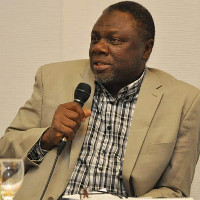 Mohammed Bila of the Lake Chad Basin Commission from N'djamena, Chad.
Mohammed Bila of the Lake Chad Basin Commission from N'djamena, Chad.
Mohammed Bila of the Lake Chad Basin Committee elaborated on the Transaqua issue, pointing to the big and ongoing migration wave southwards from Chad, since the huge drought of 1973 during which the Lake Chad lost 40% of its water. The farmers and their cattle that have migrated to the south, will not return to Chad unless the lake is refilled, and unless the terrorist movement of Boko Haram is crushed.
Ulf Sandmark reported on his two visits to Syria in 2014 and 2015, during which it became evident that the reconstruction of Syria actually implies the development of the entire Southwest Asia region, to make it an integral part of the New Silk Road. Sandmark, together with Hussein Askary, is the author of the Phoenix Projet for the reconstruction of Syria, which was welcomed by his interlocutors in Syria.
A wide-ranging, passionate discussion with the audience went on for one and a half hours, making clear that a new paradigm of thinking is necessary, one in line with the “win-win” cooperation being proposed by China. The speeches to the seminar will be published over the coming days on this website.
Helga Zepp-LaRouche's EIR Seminar Keynote:
Solving the Economic and Refugee Crises with the New Silk Road!
Hussein Askary's EIR Seminar Presentation:
The Critical Role of Egypt in Bringing the New Silk Road to Africa